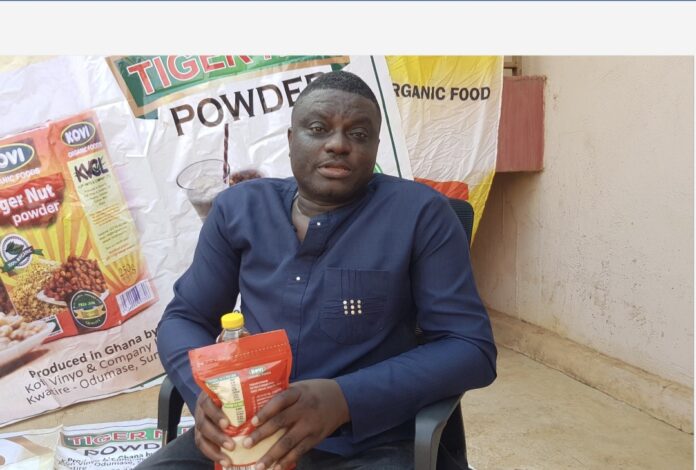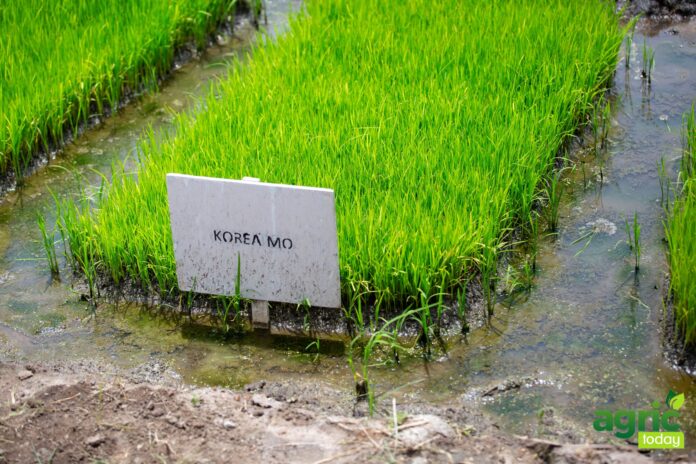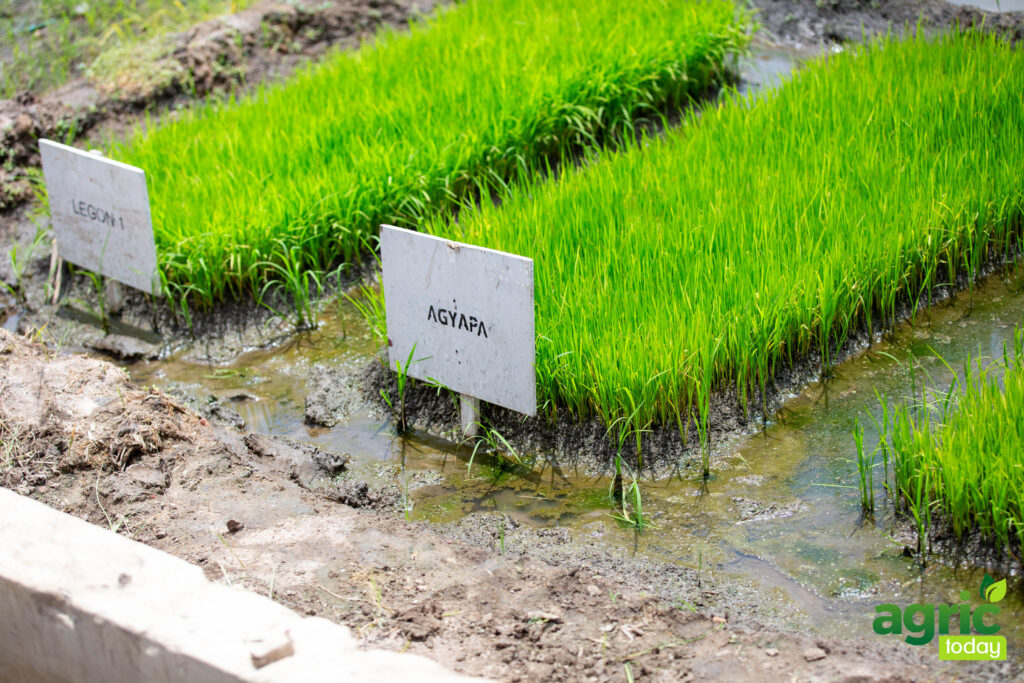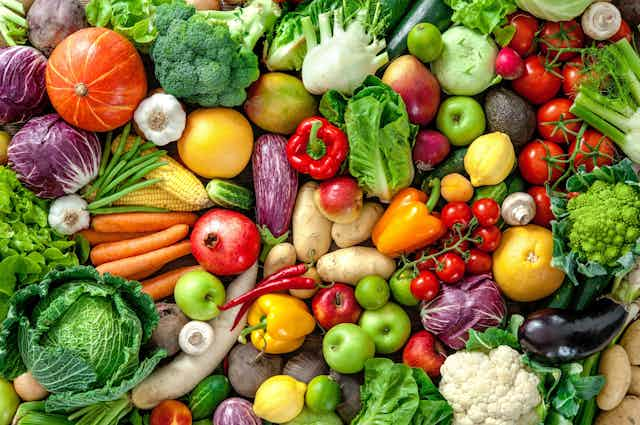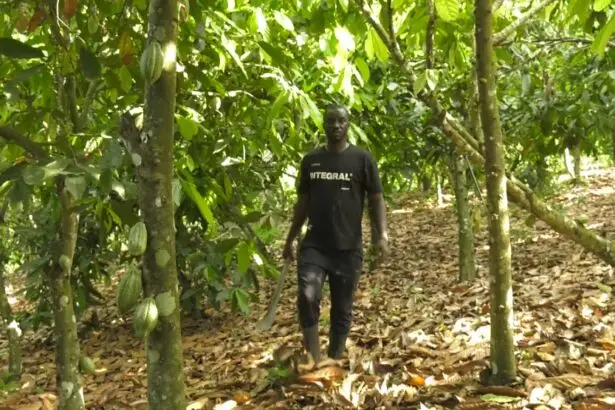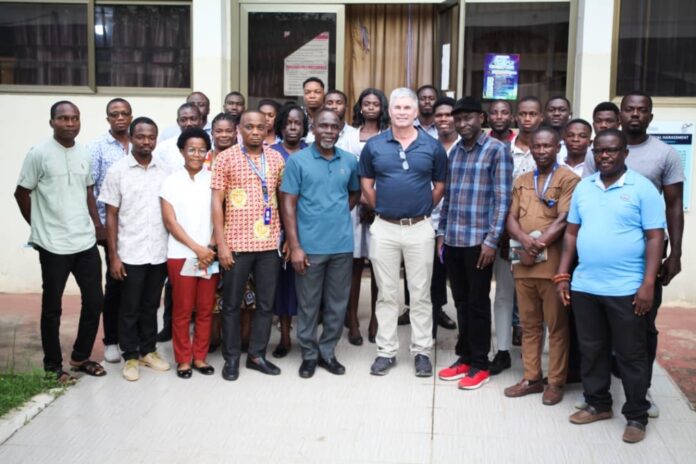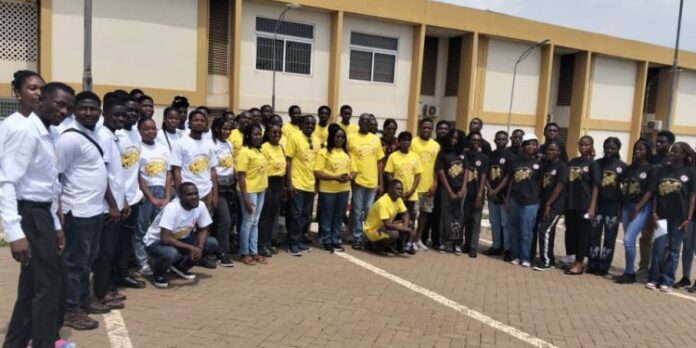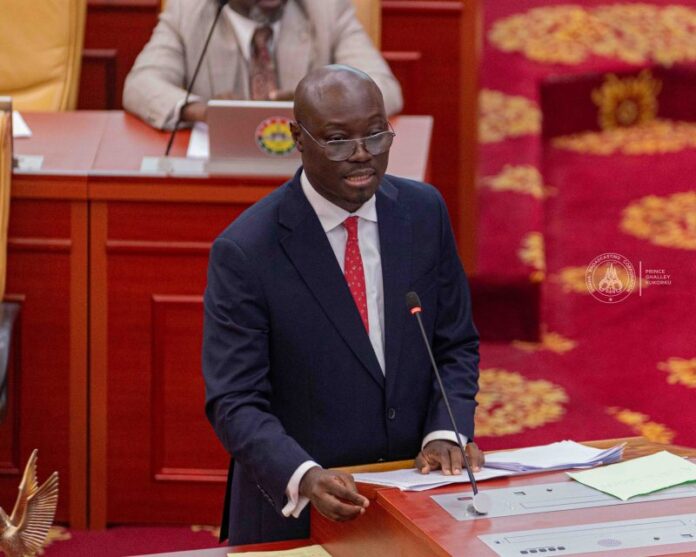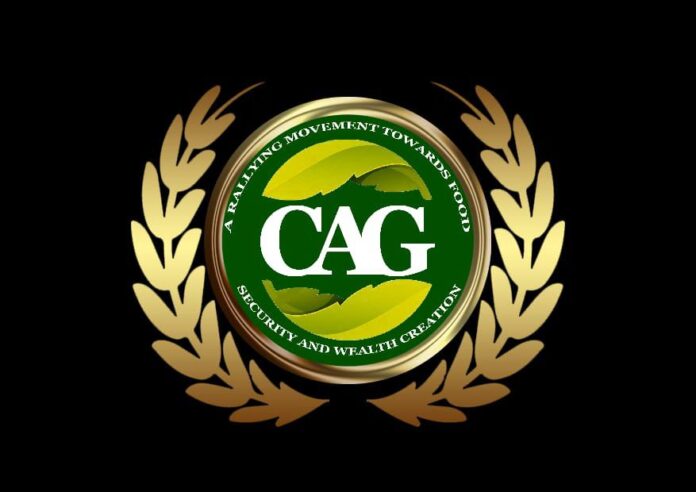The 44-year-old embattled former Director-General of the National Signals Bureau (NSB), Kwabena Adu-Boahene, was involved in extensive business dealings with COCOBOD during Dr Stephen Opuni’s tenure as Chief Executive, have been proven to be an outright lie.
Documents available to The Herald, reveal that Asaase Radio, attempted to link the former COCOBOD boss to Adu-Boahene’s financial dealings to shift focus from the latter’s controversial transactions at NSB and whitewash his reputation.
According to official records, the first time Adu-Boahene’s fertiliser company, Glofert Limited, secured a contract with COCOBOD was in 2024 — long after Dr Opuni, had left office and was undergoing a criminal trial under the Akufo-Addo government.
The contract for the supply of Adikanfo Cocoa Fertiliser was awarded in October 2024, following approval from the Public Procurement Authority (PPA).
The agreement was for 300, 000 bags of 50kg granular fertiliser at a total cost of fifteen million seven hundred and fifty thousand US dollars (US$15,750,000).
Contrary to Asaase Radio’s claims, Glofert Limited, was commissioned as a fertiliser-blending factory at Asuboi in the Eastern Region by former Vice President, Dr Mahamudu Bawumia in August 2019 under the then-government’s One-District-One-Factory (1D1F) programme.
Adu-Boahene’s fertiliser company, later got several government contracts. For instance, documents from the Ministry of Food and Agriculture (MoFA) and the Public Procurement Authority, confirm that Glofert Limited was among five companies engaged under a Single Source Procurement Method to supply fertilisers for the Planting for Food and Jobs Phase II (PFJ 2.0) programme.
In December 2023, Glofert was approved to supply 5,000 metric tonnes of urea at a total cost of GHS43.9 million.
Further discrediting Asaase Radio’s assertions, official documents show that Glofert Limite,d was registered as an agent for VAT collection only in November 2018, with Business Registration Number CS097892017.
It is unclear, what scientific protocols COCOBOD, under Joseph Aidoo, adopted prior to purchasing Adikanfo Cocoa Fertiliser from Mr Adu Boahene.
Dr Opuni was charged for sidestepping such arrangements ahead of purchasing Lithovit Foliar fertiliser from a businessman, Alhaji Seidu Agongo and his company, Agricult.,
Meanwhile, Ghana’s Attorney-General and Minister of Justice, Dr Dominic Ayine, has accused Mr Adu-Boahene of embezzling millions of dollars meant for a cyber defence project, allegedly diverting the funds into real estate ventures in Accra and overseas.
It is alleged that he used a private company, secretly operated in conjunction with his wife, to siphon funds from government contracts, thereby amassing significant personal wealth.
Despite these damning allegations, an article authored by Asaase Radio’s Editor, Wilberforce Asare, sought to paint Mr Adu-Boahene as a successful businessman whose wealth was independent of political dealings.
He mentioned that the former NSB boss owns a number of businesses in and outside Ghana, including Glofert Limited, describing the company as “a multimillion-dollar company and one of the biggest, if not the biggest, fertiliser company in West Africa, which owns the biggest fertiliser blending set-up in Ghana.”
The article falsely stated that, “Glofert did much business with COCOBOD when Dr Stephen Opuni was the chief executive officer of the entity.”
However, all available evidence indicates that Glofert Limited, did not receive any COCOBOD contracts while Dr Opuni was in office, rendering Asaase Radio’s publication inaccurate and misleading.
Speaking at a press conference on Monday, March, the Attorney-General and Minister of Justice, Dr Dominic Ayine, revealed that Mr Adu-Boahene was arrested in connection with an alleged financial scandal involving a $7 million cyber defence system contract.
Dr Ayine detailed the circumstances surrounding the case, citing financial misconduct and unauthorised transactions that diverted public funds meant for a critical national security project.
The Attorney-General explained that the cyber defence contract was intended to strengthen Ghana’s ability to detect, prevent, and respond to cyber threats, data breaches, and digital espionage. However, the funds allocated for the project were allegedly mismanaged.
“In his capacity as Director of the National Signals Bureau, Mr Adu-Boahene, on 30th January 2020, signed a contract on behalf of the Government of Ghana and the National Security on the one hand, and on the other hand, an Israeli company named RLC Holdings Limited,” Dr Ayine disclosed.
The $7 million contract was meant to acquire cyber defence system software. However, the Attorney-General alleged that just a week later, Mr Adu-Boahene made suspicious financial moves that raised red flags.
“On 6th February 2020, he then transferred an initial amount of GHS27,100,000 from the National Signals Bureau account at Fidelity Bank to a private BNC account at UMB. Official documentation on the transfer reveals that the amount was for the payment of cyber defence system software. He transferred the money to his private company.”
Authorities believe that the alleged diversion of funds has compromised Ghana’s cybersecurity infrastructure, thereby delaying the implementation of crucial security measures to protect sensitive national data.
Legal proceedings are expected to commence soon, with Dr Ayine assuring that the government remains committed to holding individuals accountable for financial mismanagement.


